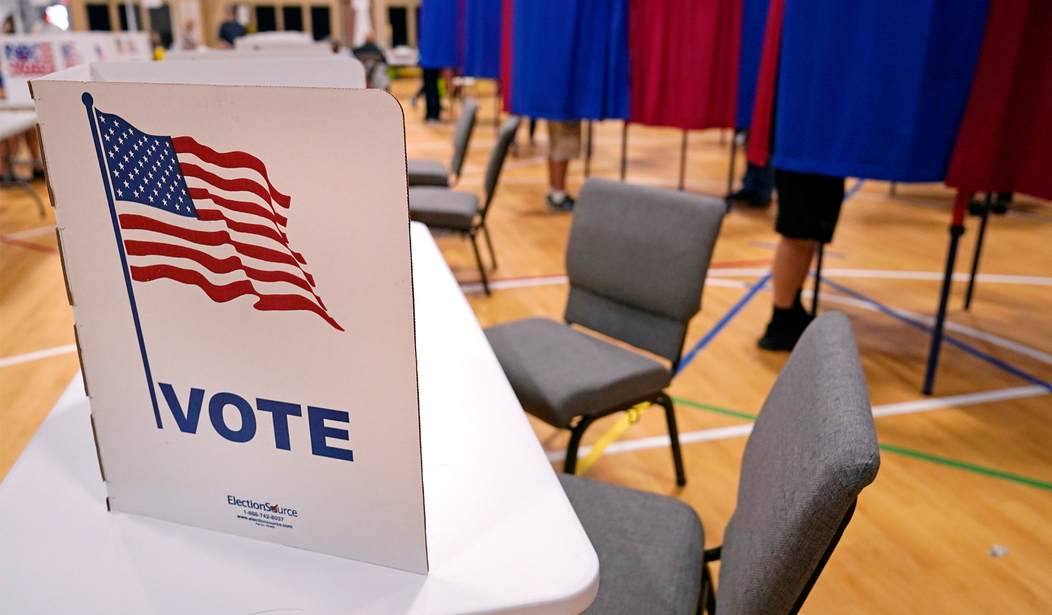In another attack against voter identification laws, leftists are now saying that transgender Americans will be subject to harassment on Election Day because a trans person’s listed legal name and biological sex may not align with their “gender identity” and appearance.
Voter ID laws have been attacked endlessly by the left in recent years, arguing that they disproportionately impact black and low-income voters. Now, critics are saying that transgender people will be harassed by voters and poll workers or turned away entirely when they show up to vote in the midterms (via NBC News):
Voter ID laws can also create problems for trans people in particular, who might change their names and gender presentations as part of their transitions, and updating their IDs would require them to also legally change their names and potentially their gender markers.
There are an estimated 878,300 voting-eligible transgender adults in the U.S., according to a September report from the Williams Institute at the UCLA School of Law, and about 414,000 of them live in 31 states that conduct their elections primarily in person at the polls and also have laws that require or request that voters show some form of ID. Nearly half of the eligible trans voters in those 31 states, about 203,700 of them, don’t have IDs that reflect their gender identities and the names they go by, and 64,800 of them live in states with the strictest voter ID laws, where photo IDs are required with few or no alternatives available, according to the Williams Institute.
“We hear stories from voters after most elections that they were challenged at the polls because their driver’s license or other ID didn’t match their current appearance or that the name that was on it did not match in the poll worker’s mind the gender presentation that they had,” said Hunt, of the National Center for Transgender Equality.
Recommended
NBC’s report goes on to explain that legally changing one’s name and gender can be a lengthy and costly process, so many people who identify as transgender have not going through with it.
Reportedly, when Jace Wilder, a transgender education manager at LGBTQ+ advocacy group the Tennessee Equality Project, voted in-person in 2020, a poll worker “stared at his ID for about five minutes.” Wilder then “felt compelled to out himself as trans and explain the discrepancies.” The poll workers still allowed Wilder to vote.
Mariah Moore, a senior national organizer for the nonprofit advocacy group Transgender Law Center, told U.S. News that voter ID laws “really opens up our community to different types of violence and discrimination by saying, ‘You’re not who you say you are.’”
The majority of states will require or request voters to show some form of identification for the 2022 midterm elections. These kinds of laws are meant to prevent fraud and protect election integrity. Eight states have strict photo ID laws, such as in Tennessee. A study from UCLA’s Williams Institute found that over 697,800 voting-eligible transgender Americans live in 42 states with ID laws, and that 43 percent of them lack documents that align with their “gender identity.”
Left-wing music publication Rolling Stone described this as another facet of “the Republican campaign of voter suppression” in an effort to “[preserve] Republicans’ white-minority rule for as long as possible.” The report claimed that the amount of trans Americans who will have their votes “suppressed” is enough to swing elections.
However, several lawsuits in recent years have upheld voter ID laws, including in Virginia, North Carolina, and Indiana. This month, The Heritage Foundation published a report detailing how voter ID laws enacted in recent years have not reduced voter turnout. Despite this, left-wing organizations and politicians, like failed gubernatorial candidate Stacey Abrams push the narrative that certain groups of people will not have their votes counted over these laws (via The Heritage Foundation):
Until the November election, the best test of whether these reforms result in "voter suppression" or better access to secure elections is the 2022 primaries.
Of the three states with election laws the Biden Justice Department sued over: Georgia had a 168 percent increase in voter participation in the 2022 primary, compared to its off-year primary in 2018; Texas had a 17.7 percent turnout this year, compared to 17.2 percent in 2018; and the 2022 Arizona primary had a record high primary turnout of 35.12 percent, up from 33.3 percent in 2018. If this is the trend, general election turnout could be historic—the exact opposite of the claims in Priorities USA's "voter suppression" campaign.
“The cry of voter suppression is bogus, an empty partisan talking point. But the Left won't let go, if only because it's proved to be such an incredibly lucrative fundraising pitch,” the report concluded.

























Join the conversation as a VIP Member